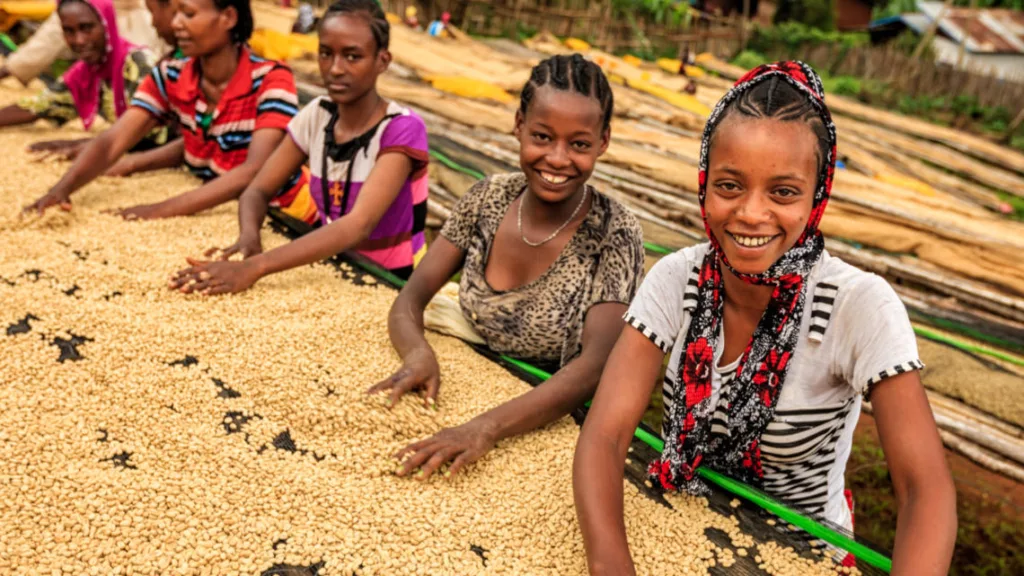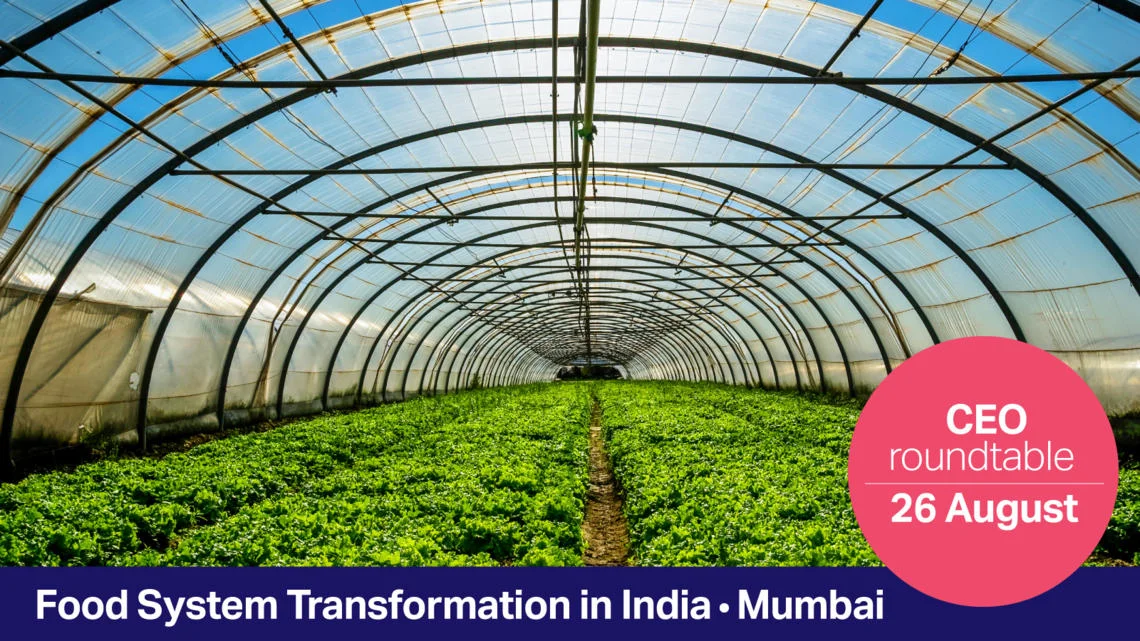India is the second largest food producer in the world and has moved from dependence on grain imports into a net exporter of food. However, India faces low average agricultural productivity at the national level and high variation regionally. The increasing uncertainty of monsoons and increasing rainfall deficiency due to climate change will severely affect small and marginal farmers who constitute 86% of India’s food producers. India’s food system is in severe need of intervention, with millions going hungry while large quantities of produce goes to waste due to rot and lack of adequate storage facilities.
Indian business leaders involved in India’s food system met on 26 August in Mumbai for a discussion on Food Systems Transformation in India. The key objective of the session was to look at the cultural and economic specificities of India’s food system in the context of global changes in how we grow and consume food and discussing the development of a dedicated WBCSD Food and Nature India Platform.
Companies such as Godrej, ITC, Jain Irrigation, UPL, RaboBank, Mahindra, Bayer, Unilever India took part in this high-level discussion to assess where business leadership could make the most impact in transforming India’s food system.
Key issues that were highlighted were:
- Water: Water and its availability is a crucial variable that must be taken into consideration for all our projects and initiatives in India.
- Agri-tech and data: Participants highlighted the opportunities that technology and innovation presented at the farm level and in using data for transparency and traceability to drive engagement with consumers.
- Farmer-centric business models: Conversations on food systems in India must place farmers and their prosperity at the centre of all solutions. Several business models were presented as solutions such as farm equipment rentals, contractual models for businesses with farmers, improvements in distribution – including storage facilities.
- Developing agro-processing clusters: Assessing the farm’s location, climate, soil and market linkages to determine the best crop to grow in the area.
- Improving nutrition: Access to nutrient-rich food and tackling obesity and malnutrition are crucial in India. Making food affordable and sustainable within regional dietary norms will be key in tackling these issues.
Steps forward
The participants in the discussion agreed to meeting again to review priorities and work together to help lead and scale-up transformation in India’s food systems. WBCSD will develop a CEO statement to highlight business leadership to support the government’s high-powered committee for ‘Transformation of Indian Agriculture’. We also aim to publish a business guide to the committee’s report and an economic analysis of sustainability interventions and their impact on farmer livelihoods in India.
Finally, a key WBCSD-led initiative in India is the Farm of the Future initiative where we aim to explore how we can leverage technology and innovation to help deliver sustainable, profitable agriculture. WBCSD aims to build on the conversations at the CEO roundtable to design the project work in the coming months.
Related
Content

A sustainable food system depends on business working better with farmers
19 August, 2021

Business action to unlock the potential of African farmers – WBCSD’s takeaways from the AGRF Summit 2023
14 September, 2023

How to identify high-quality, credible carbon credits: 5 takeaways from the Fundamentals of Decarbonization Masterclass
22 December, 2022

